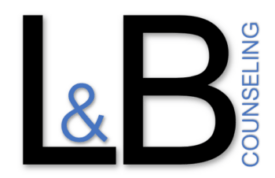
We live in an era where we can be surrounded by people—virtually or physically—and still feel deeply alone. Between work stress, endless notifications, and jam-packed schedules, meaningful connection often gets pushed to the back burner.
But if there’s one thing decades of research tells us, it’s this:
Strong relationships are the single biggest predictor of mental and emotional well-being.
The Science is Clear: Connection Heals
A landmark study out of Harvard, spanning over eight decades and multiple generations, has revealed one consistent truth: strong relationships are the most powerful predictor of long-term happiness, life satisfaction, and overall well-being (Waldinger & Schulz, 2023).
As Waldinger and Schulz put it, “Good relationships keep us happier, healthier, and help us live longer” (2023, p. 278).
Their findings are echoed in broader healthcare data. Patients who reported meaningful social connections were not only happier but also physically healthier than those who lacked them. These individuals showed better coping skills under stress, experienced a deeper sense of belonging and purpose, and even exhibited tangible health benefits—like lower blood pressure and enhanced brain function (Waldinger & Schulz, 2023).
Moreover, the study found that satisfying relationships offer protective benefits well into old age. People with strong connections were significantly less likely to experience cognitive decline in their 80s, reinforcing the idea that emotional support is as vital as physical care (Waldinger & Schulz, 2023).
The good news? Even if forming close relationships doesn’t come naturally, social connection is a skill that can be learned. As Mineo (2017) notes, simple, intentional efforts to improve how we relate to others can lead to profound increases in happiness and life satisfaction.
So What Does “Connection” Actually Mean?
It’s not about being the most social person in the room. It’s about feeling seen, understood, and supported.
That might look like:
- A weekly lunch with a trusted friend
- Talking openly with your partner about life’s stresses
- Sharing a laugh with coworkers over coffee
- Volunteering for a cause that gives you purpose
- Joining a group that shares your interests—faith, fitness, parenting, or art
The key? Consistency and vulnerability. Let people in. Let them really know how you’re doing.
How to Build More Connection Into Your Life
If your relationships feel like they’ve slipped or you’re not sure where to start, try this:
1. Schedule Connection Like You Would a Meeting
Put a 30-minute phone call or lunch on your calendar each week with someone you trust.
2. Be the One to Go First
Start the check-in. Send the text. Ask how they’re really doing—and share how you are too.
3. Join Something Local
Even if it’s a little outside your comfort zone, joining places where people gather—like a nonprofit, a book club, or a parent group—creates opportunities for genuine connection to take root. If you need a place to start, check out our Healthy Human Recipe Tool powered by AI. This tool can help you find places throughout our community to connect with others.
4. Put Down the Phone
We’re wired for face-to-face interaction. Even just a few minutes of real conversation can help boost mood and reduce stress.
Therapy: A Space for Connection, Too
At L & B Counseling, we believe that healing starts in relationships—including the one you build with your therapist.
It’s a safe space to feel heard, explore what’s going on, and start making empowered changes with someone who’s in your corner.
Ready to take the first step? Let’s talk. Schedule your first session today.
